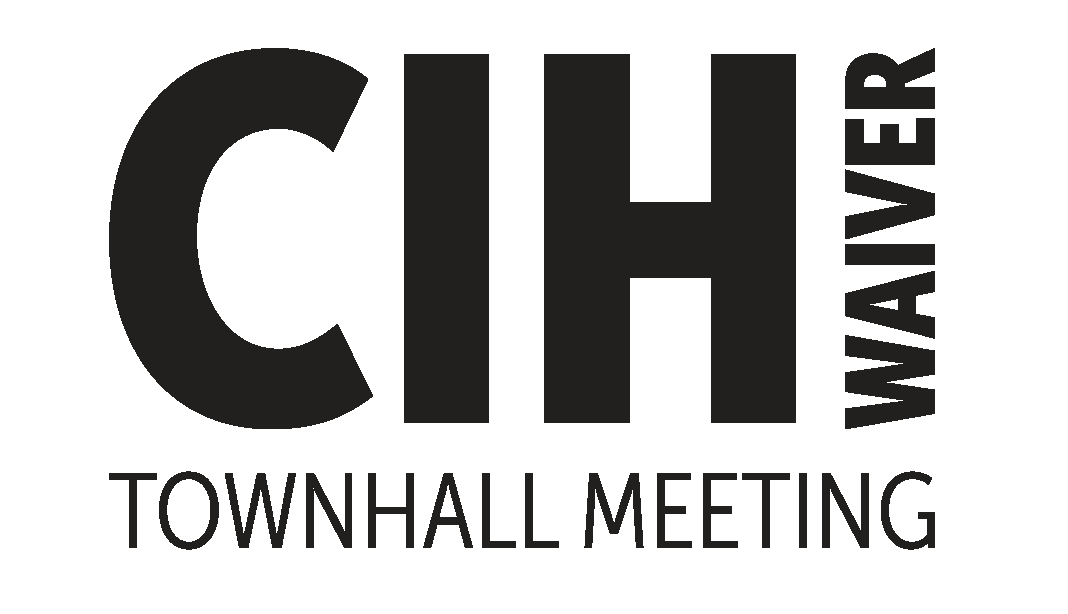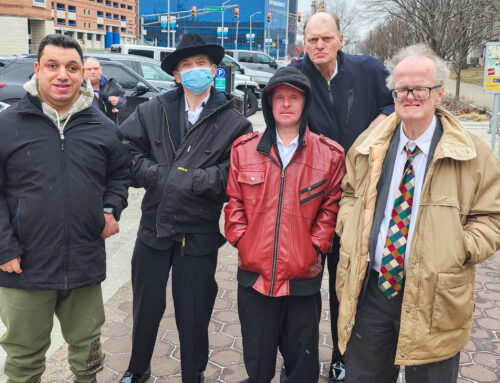When the family of someone with a disability hears rumors of change to their Community Integration Habilitation (CIH) waiver services, the first response is fear. This daunting fear and confusion drove an emotional CIH Transform Town Hall Meeting in South Bend Wednesday, Sept. 16.
Approximately 20 parents and family members of people with disabilities sat quietly at the LOGAN Center while presenters from the Indiana Family and Social Services Administration’s Division of Disability and Rehabilitation Services (DDRS) explained the need for changes to the CIH waiver and sought public opinions.
During the presentation, Bureau of Developmental Disability Services Director Cathy Robinson repeatedly pinpointed worker shortages as the trigger for changes in the system. Many direct support professional positions remain vacant throughout the state as the Indiana job market continues to grow. Future projections for employment are not hopeful.
“A labor shortage is worsening in one of the nation’s fastest-growing occupations – taking care of the elderly and disabled – just as baby boomers head into old age,” the Wall Street Journal printed April 15, 2013.
In light of this fact, DDRS realizes the current system will no longer be sustainable in the future. They are proposing changes to ensure Indiana residents with disabilities continue to receive supports and have access to employment and meaningful day activities.
Some of the avenues of the change put on the table during the presentation were providing more family support, developing relationship-based living arrangements, promoting employment and exploring technology.
 No changes have occurred yet, instead DDRS partnered with the Public Consulting Group to host these town hall meetings in several locations throughout the state of Indiana during September. In the South Bend meeting for parents, a Public Consulting Group employee opened the room to comments from parents after the 30 minute presentation.
No changes have occurred yet, instead DDRS partnered with the Public Consulting Group to host these town hall meetings in several locations throughout the state of Indiana during September. In the South Bend meeting for parents, a Public Consulting Group employee opened the room to comments from parents after the 30 minute presentation.
For the next 90 minutes, parent after parent voiced their fears of losing crucial supports, such as day services; reduced options for waiver spending; and the usage of non-staff solutions, including robots.
This town hall meeting served as a place for many parents to air long-harbored grievances with the current system. Some complained of the lack of communication between state agencies, making it difficult for their loved one to receive CIH waiver, Social Security and Medicaid funding since each application is dependent upon the other. Other parents voiced gratitude and frustration within the same breath as they have the funds for services such as in-home supports or respite care, but cannot find appropriate providers.
As each person spoke and some more than once, the room became increasingly hostile. A representative from a case management company made combative responses to several parents’ complaints, resulting in defensive comments on both sides.
The meeting culminated as Robinson felt the need to return to the podium and acknowledge the very present fears in the room.
“We haven’t made any decisions because we feel like we need your input,” Robinson said. “What we’re certainly not going to do is bring parents and caregivers in a room and scare the crap out of them. That’s not okay . . . We appreciate you sharing that level of distress. We know that’s there, but all the money in the world isn’t going to fix the labor shortage.”
An honest solution to much of the fear and confusion present in the room is programs such as ADEC’s transition and GPS services. In both programs, trained social workers come alongside families and provide assistance in navigating the confusing governmental applications. They sit in on annual meetings and present options for the transition from school to adulthood.
This past weekend, ADEC worked with Indiana University South Bend’s School of Social Work and Michiana Down Syndrome to host a Transitions Fair for families to attend. This one event hosted 70 providers in one room. For many parents, this was an invaluable resource.
One mother came in desperate for answers on an application discrepancy between the Bureau of Developmental Disability Services and Social Security. When ADEC Senior Manager of Community Employment Sara Howard escorted her to a helpful point person, the lady turned and hugged her in gratitude.
When it comes to transitions and planning your child’s future, regardless of his or her age, fear is a common response. The system is not perfect, but ADEC is here to make sure you are not this journey alone.
Article by Whitney Craig/Communications Specialist












